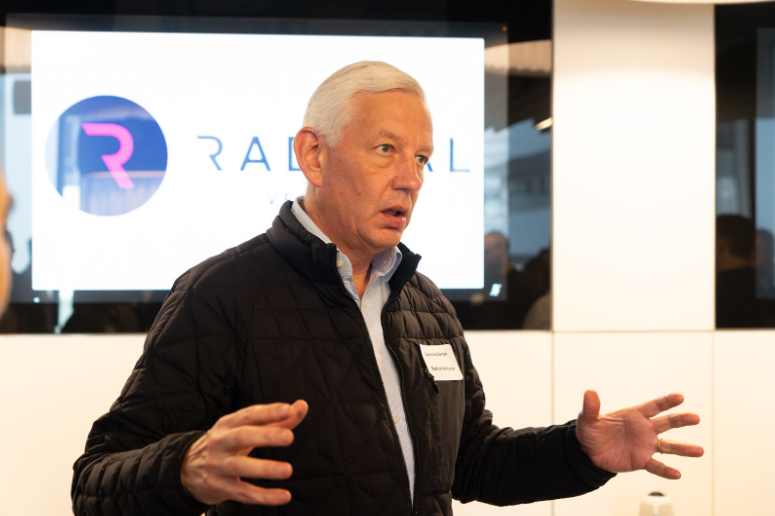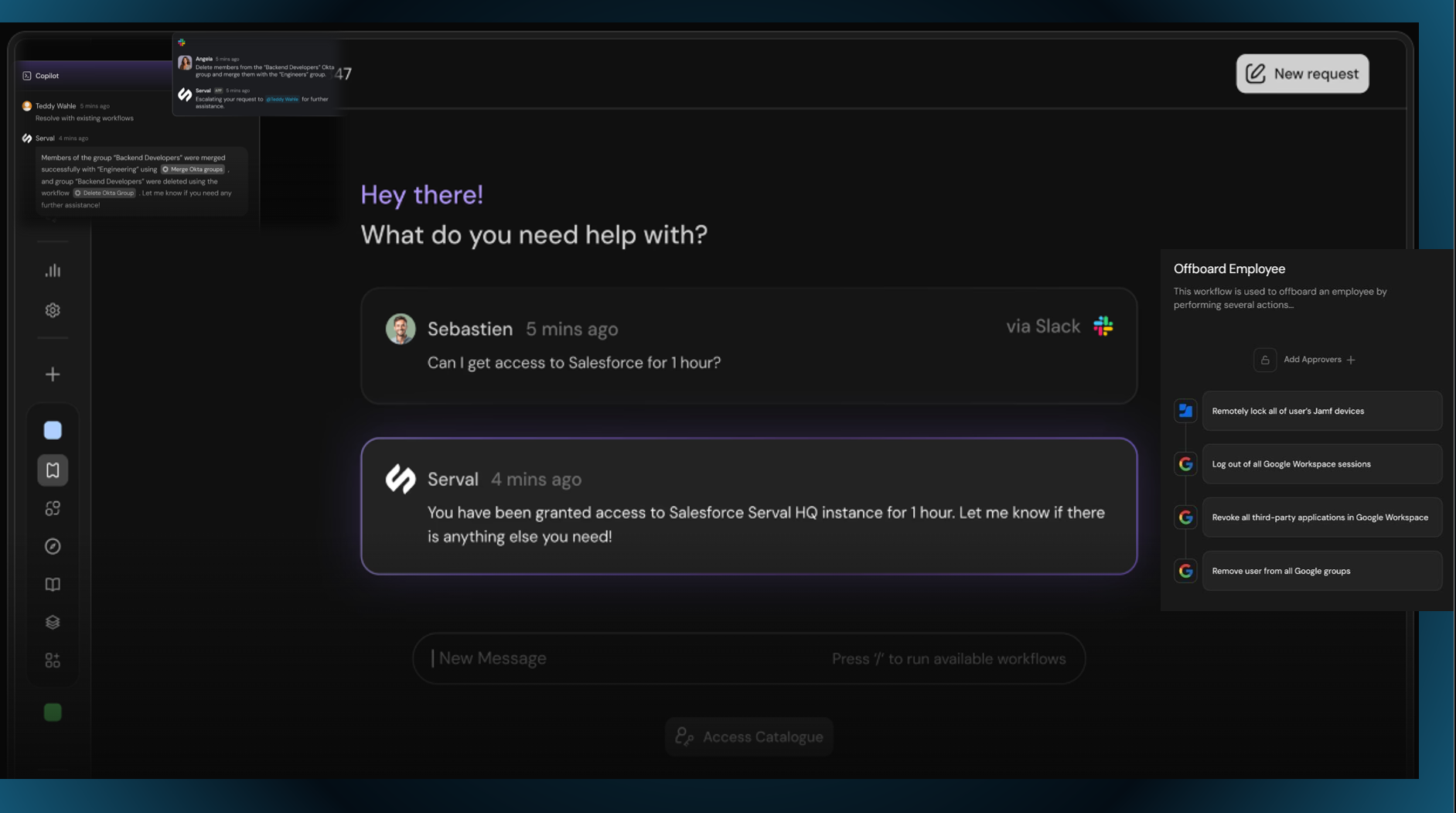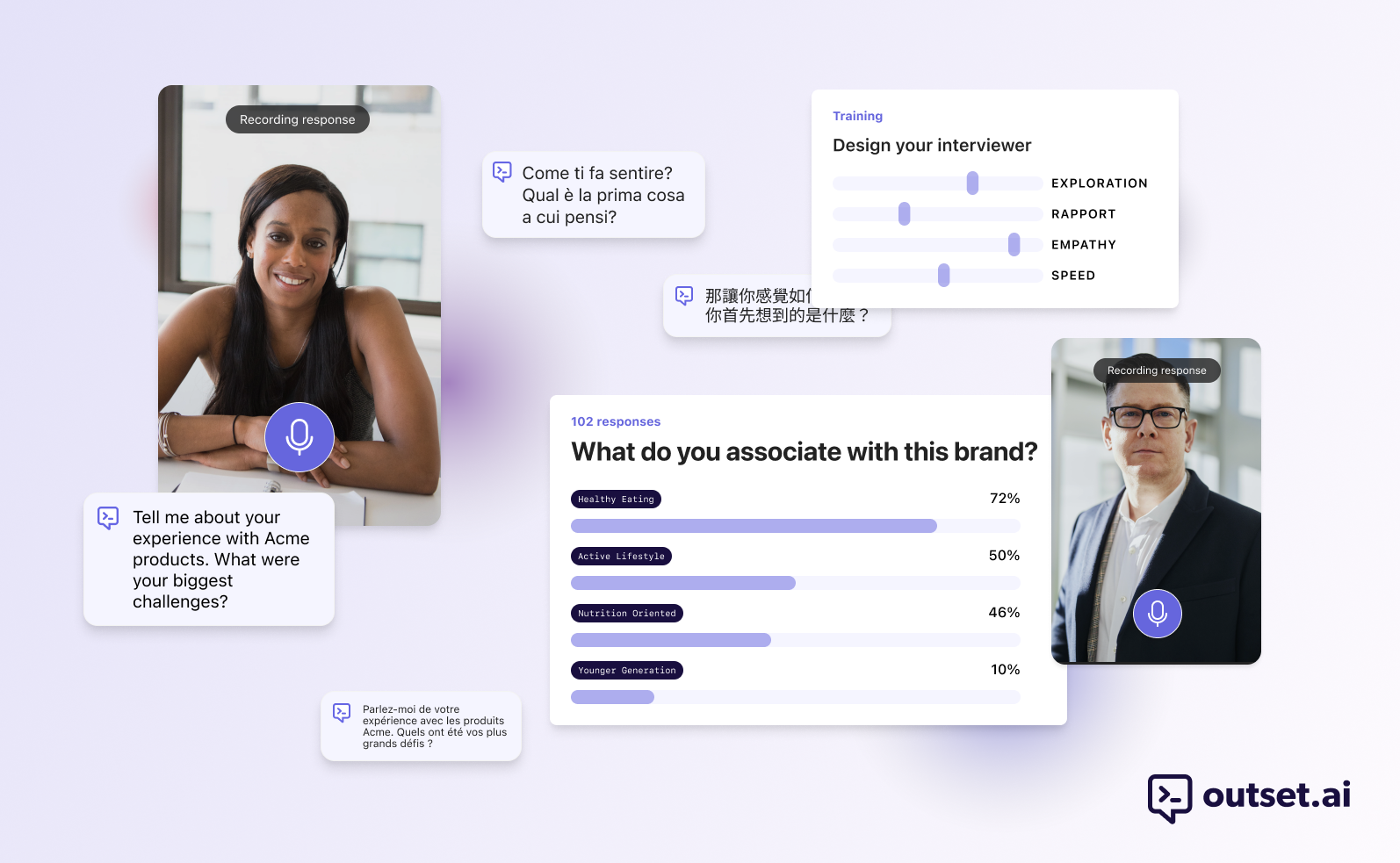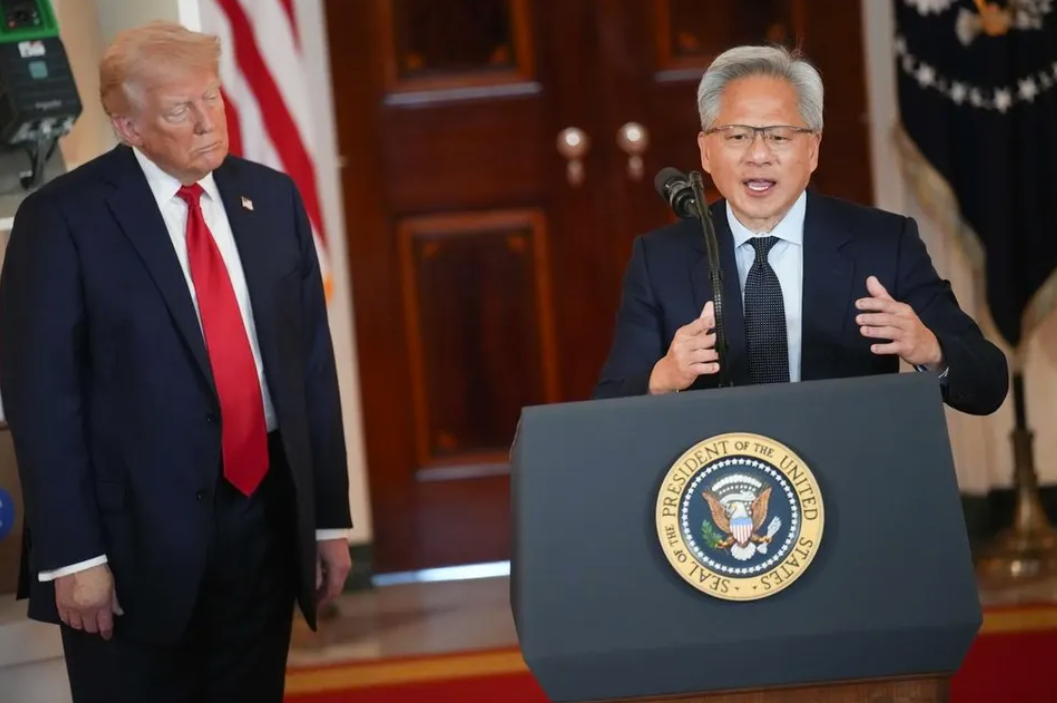Last week Radical Ventures hosted its AGM in Toronto, bringing together Radical portfolio founders, LPs and the Radical team. Among those joining us was Radical Partner, Dominic Barton. Dominic is the former Global Managing Partner at McKinsey & Company and was subsequently the Ambassador of Canada to the People’s Republic of China. Today he is the Chairman of Rio Tinto. Today, Dominic shares his reflections on the Radical AGM (also cross-posted to LinkedIn).
Five years ago, when Radical Ventures launched an institutional fund focused on investing in AI companies, it was the first of its kind. Fast-forward to today, and Radical is a world-leading VC firm. So, how do you go about building a world-class AI venture fund?
As a partner at Radical, I had the opportunity to attend the firm’s annual general meeting last week. Before a room of global institutional investors, the Radical team offered a glimpse into their unique approach to investing in the future of AI. The following are my three key takeaways from this year’s Radical AGM:
Find early conviction in a disruptive thesis
Radical wasn’t afraid to make a bold bet. Jordan Jacobs, Co-founder and Managing Partner at Radical Ventures, highlighted the firm’s founding thesis: AI will replace software and unlock groundbreaking scientific discoveries. The fund was founded on the deep conviction that advancements in AI – particularly those rooted in the transformers-based architecture underpinning generative AI – would soon revolutionize every industry.
Cultivate a powerful network
Relationships are the cornerstone of Radical’s strategy. They have built deep connections with AI pioneers such as Geoffrey Hinton and Fei-Fei Li (who is a Scientific Partner at Radical). The fund also invests in its network. Among Radical’s portfolio are companies led by AI luminaries like Raquel Urtasun, Richard Socher and Pieter Abbeel. Radical understands that networks are not static – they rely on dynamic relationships that need to be developed and honed. With an eye to the next generation of AI innovators, Radical created a program for AI researchers exploring what it takes to commercialize their work. Today, the Radical AI Founders Master Class has 1700 community members from the world’s top industry and academic AI labs.
Create new categories of business
AI is not only disrupting legacy industries, it is creating entirely new businesses that will transform every aspect of the economy. Radical has looked at over 8400 start-ups and invested in 44. At the AGM we heard directly from four of Radical’s portfolio companies. While working to solve very different challenges, these leaders share a common trait — they are at the forefront of net-new categories of business. Here’s a brief snapshot of what they shared:
- Cohere – Martin Kon, President and COO
Cohere is one of a cohort of companies including OpenAI and Google DeepMind that is developing the world’s most sophisticated Large Language Models (LLMs). The company’s co-founders include its CEO, Aidan Gomez, the co-inventor of the Transformer architecture which is at the core of Cohere’s platform and modern generative AI. Radical was the first investor in Cohere, leading its 2019 seed investment (investing long before the hype that accompanied the launch of ChatGPT).
- Unlearn – Charles Fisher, Co-founder and CEO
San Francisco-based Unlearn has devised a powerful way to apply AI to improve clinical trials. Using advanced biostatistics and machine learning, Unlearn creates “digital twins” of clinical trial participants, reducing the number of actual humans that need to be recruited for control arms. This makes clinical trials cheaper and faster to execute, ultimately enabling life-changing therapeutics to reach patients sooner. Unlearn has received support from both the FDA and EMA for the use of its technology in clinical trials and the company has partnerships with the world’s leading pharma and biotech companies.
- DatologyAI – Ari Morcos, Co-founder and CEO
AI models are a reflection of the data on which they are trained. Put another way: models are what they eat. Training models on the right data can drive dramatic improvements in model performance and – just as importantly – in model efficiency. Data curation for self-supervised learning remains a challenging, cutting-edge research problem. DatologyAI was founded to democratize this critical part of the AI infrastructure stack, making model training more accessible to all through a platform that automates data curation at scale.
- Intrepid Labs – Dr. Christine Allen, Co-founder and CEO
The formulation step is a critical part of pharmaceutical product development and manufacturing, as it determines the final drug product’s safety, efficacy, and stability. Successful formulation requires careful selection and optimization of manufacturing processes, along with rigorous quality control to ensure a safe and effective final product. Intrepid Labs generates novel formulations for pharmaceutical drugs that have higher efficacy, lower cost, and chemical properties optimized for market viability. The company’s vision is to bring better treatments to patients, faster. Intrepid is a spin-out of the Vector Institute for Artificial Intelligence, the research institute that was co-founded by Radical’s Jordan Jacobs and Tomi Poutanen, among others.
Building a world-class AI venture fund requires a bold thesis, a powerful network, and the ability to identify and support new categories of business creation. By adhering to these tenets, Radical has positioned itself to capture the transformative potential of artificial intelligence.
AI News This Week
-
Welcome to the era of the AI smartphone ((New York Times)
- Virtually every bit of software will be replaced by AI over the next decade. The infrastructure of 1s and 0s that has powered the digital age and created trillions of dollars in value and productivity – is at the beginning of a major upgrade cycle. The implications for our world and the global economy are profound. This year, Apple and Google are significantly enhancing their smartphone software with AI. Apple’s upcoming iOS 18 will feature a revamped Siri, capable of natural conversation and complex tasks, and will include AI tools for generating images, summarizing web articles, and crafting text responses. Google’s updates for Android include the AI assistant Gemini, which offers features like scam detection, homework help, and automatic transcription summaries. These updates aim to transform user experience through AI integration while improving cross-platform communication.
-
AI will make money sooner than you’d think (The Verge)
Aidan Gomez, CEO and Co-founder of Radical portfolio company Cohere, discusses the company’s unique strategy in the AI sector, focusing on enterprise solutions rather than consumer products. This focus provides Cohere with potential for higher profitability and competitive advantages due to lower computing costs and customer demand for cost-effective solutions. The discussion brings to light broader industry challenges, particularly the balance between advancing technology and managing public and corporate expectations.
-
Robots are suddenly getting cleverer. What’s changed? (The Economist)
Robotic capabilities have significantly advanced due to innovations in AI. Large language models (LLMs) and vision-language-action models (VLAMs) enable robots to perform complex tasks autonomously by combining text, images, and sensor data Radical portfolio company Covariant has built an AI platform, Covariant Brain, that enables robots to see, reason, and act autonomously, handling complex tasks in industries like food distribution and e-commerce by learning and adapting in real-time. “We can expect the intelligence of robots to improve at the speed of software” which will contribute to a “renaissance of robotics” according to CEO Peter Chen.
-
For Geoffrey Hinton, the godfather of AI, machines are closer to humans than we think (The Globe and Mail)
Geoffrey Hinton, an investor in Radical Ventures and a co-founder of the Vector Institute for Artificial Intelligence alongside Radical Ventures partners Jordan Jacobs, Tomi Poutanen and Ed Clark, discusses machine intelligence, arguing that chatbots like ChatGPT genuinely understand language in ways similar to humans and can exhibit cognitive emotions despite lacking physiological responses. He challenges the notion that humans have a unique subjective experience, suggesting that AI can have similar experiences.
-
Research: animal2vec and MeerKAT A self-supervised transformer for rare-event raw audio input and a large-scale reference dataset for bioacoustics (large collaboration)
Researchers have created MeerKAT, a dataset with over 1,068 hours of meerkat audio recordings and developed animal2vec, a model training framework for recognizing animal calls. This initiative mirrors efforts in human language processing, aiming to build foundational models that could advance our understanding of animal communication. The researchers believe that animal2vec could serve as a crucial tool for other scientists, allowing them to fine-tune this model with their datasets without needing extensive computational resources. This work is part of a broader effort to use modern AI to represent and explore the world’s biological diversity in new ways, enhancing our ability to study and interpret animal behaviour.
Radical Reads is edited by Ebin Tomy (Analyst, Radical Ventures)





